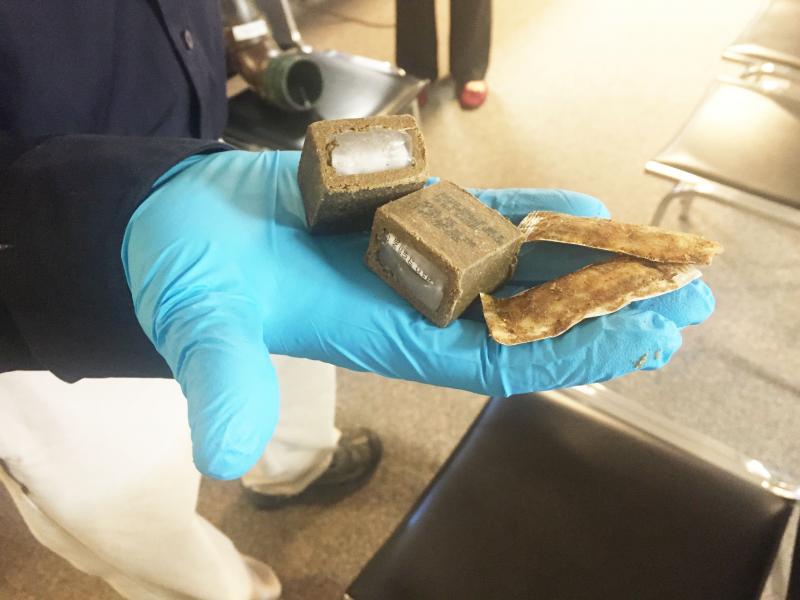Rabies vaccination program to roll out in tri-town
Federal, state and local officials will renew their battle against the rabies virus starting next week.
Marion and Rochester residents were cautioned to be on the look out for vaccine-laden baits designed to keep the deadly disease at bay in the wildlife population. Town officials, volunteers and United States Department of Agriculture officials working on behalf of the Cape Cod Rabies Task Force will continue the Oral Rabies Vaccine Program by distributing 72,000 vaccinations.
Some of those baits will be hand-distributed in Marion and Rochester. Marion baits will be distributed on April 24. In Rochester, baits will be dropped on April 27.
USDA Wildlife Biologist Brian Bjorklund and Yarmouth’s Director of Natural Resources Karl von Hone explained the program, which distributes baits once in the spring and again in the fall, during a Thursday morning press conference in Bourne.
The local efforts are part of a national program that is slowly working to eliminate rabies from the eastern seaboard, Bjorklund said.
The task force is charged with making sure Cape Cod stays free of rabies and diminish its reach on the South Coast. Bjorklund said the program reduces raccoon-variant rabies, which is easily spread to other wildlife, pets and people.
The vaccines are inside plastic packets that are wrapped inside bait made up of fishmeal in 2-inch cubes. With its distinctive odor, Bjorklund said the bait attracts dogs and cats as well as raccoons. He encouraged dog owners to keep pets on leashes following the distribution of the bait. If eaten, the baits will not harm pets, but the animal may experience some stomach discomfort.
Bjorklund urged pet owners to contact him if they find a pet has taken a bait. He noted officials carefully track how many baits are distributed and must account for lost doses.
In addition to the hand distribution, 48 stations on the mainland will be stocked with bait. Made of plastic piping, the stations are located in the woods of the communities targeted. Bait stations will be filled on April 24 and monitored for three weeks after that date.
If anyone finds a bait sample, Bjorklund said it should be picked up using gloves and tossed into the woods or disposed of properly.
If you find a bait and have questions, call the Massachusetts Department of Health at 617-983-6800 or Bjorklund at 508-476-2956.















